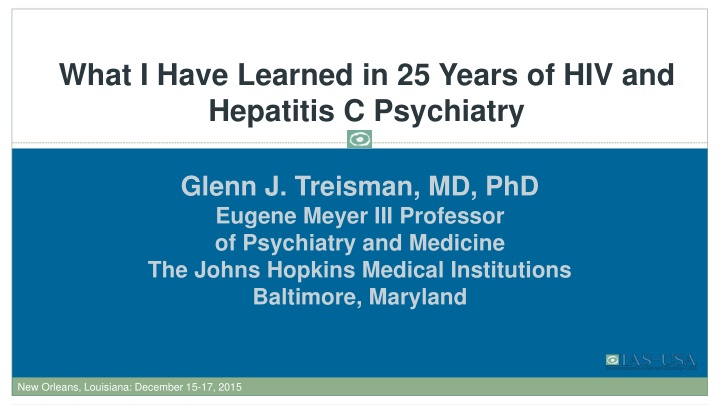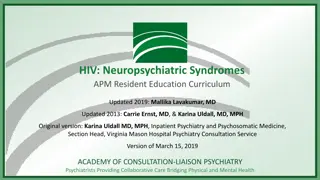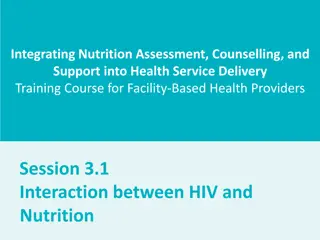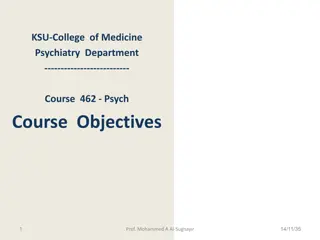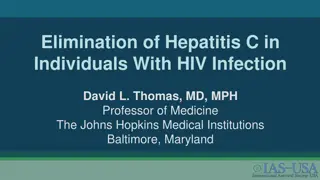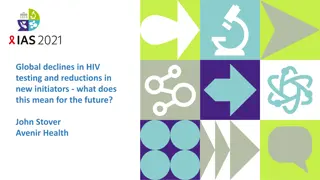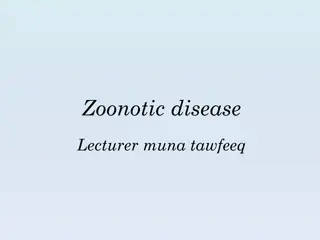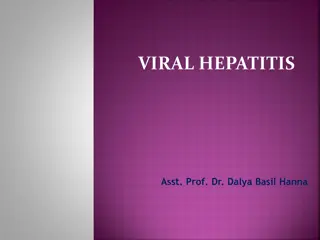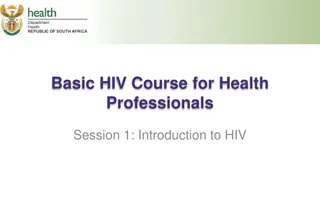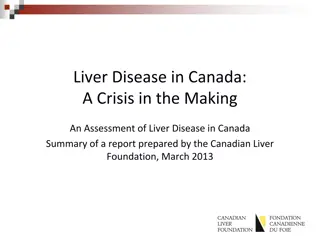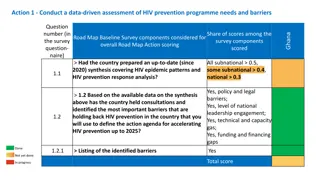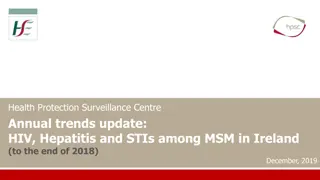Lessons from 25 Years of HIV & Hepatitis C Psychiatry
Reflect on insights gained over decades in the field of HIV and Hepatitis C psychiatry, exploring topics like major depression, abnormal illness behaviors, and patient satisfaction correlations with mortality.
Download Presentation

Please find below an Image/Link to download the presentation.
The content on the website is provided AS IS for your information and personal use only. It may not be sold, licensed, or shared on other websites without obtaining consent from the author.If you encounter any issues during the download, it is possible that the publisher has removed the file from their server.
You are allowed to download the files provided on this website for personal or commercial use, subject to the condition that they are used lawfully. All files are the property of their respective owners.
The content on the website is provided AS IS for your information and personal use only. It may not be sold, licensed, or shared on other websites without obtaining consent from the author.
E N D
Presentation Transcript
What I Have Learned in 25 Years of HIV and Hepatitis C Psychiatry Glenn J. Treisman, MD, PhD Eugene Meyer III Professor of Psychiatry and Medicine The Johns Hopkins Medical Institutions Baltimore, Maryland FORMATTED: 11/17/15 New Orleans, Louisiana: December 15-17, 2015
Slide 2 of 75 Experience Meaning Behavior Assumption
Slide 3 of 75 Major Depression Demoralization Anhedonia (Pervasive loss of rewards from activity) AM insomnia Family history Similar episodes Disrupted life course Unresponsive to positive events Distractible from loss (Maintains rewards from activity) Initial insomnia No family history Unique episode Stable life course Responsive to positive events
Slide 4 of 75 stress demoralization CNS inflammation drug effects substance abuse subcortical injury cognitive impairment HIV Depression impulsivity hopelessness carelessness demoralization substance abuse cognitive impairment
Slide 5 of 75 Simplified model of disposition Percent of population Introversion Extraversion Reward directed Present directed Feeling directed Punishment avoidant Future directed Function directed
Slide 6 of 75 Abnormal Illness Behavior Behaviors associated with illness that have been conditioned to continue in the absence of the initiating stimulus
Slide 7 of 75 Examples of reinforcers in abnormal illness behavior Positive reinforcers Disability payments Attention from spouses, family, doctors, lawyers Ability to express prohibited feelings Possibility of lump sum payments Negative reinforcers Relief from stress, expectations and criticism Relief from pain and discomfort
Slide 8 of 75 Increased patient satisfaction correlates with increased mortality 1.6 1.4 1.2 1 0.8 all patients 0.6 patients in good health 0.4 0.2 0 least satisfied 2 3 most satisfied The cost of satisfaction: a national study of patient satisfaction, health care utilization, expenditures, and mortality. Fenton JJ, Jerant AF, Bertakis KD, Franks P. Arch Intern Med. 2012 Mar 12;172(5):405-11.
Slide 9 of 75 Solutions The art of medicine cannot yet be mechanized and we must defend it Integrated care is better care Saving money in the short run has not succeeded HIV and Hepatitis C are transmitted by psychiatric vectors, and can be stopped
